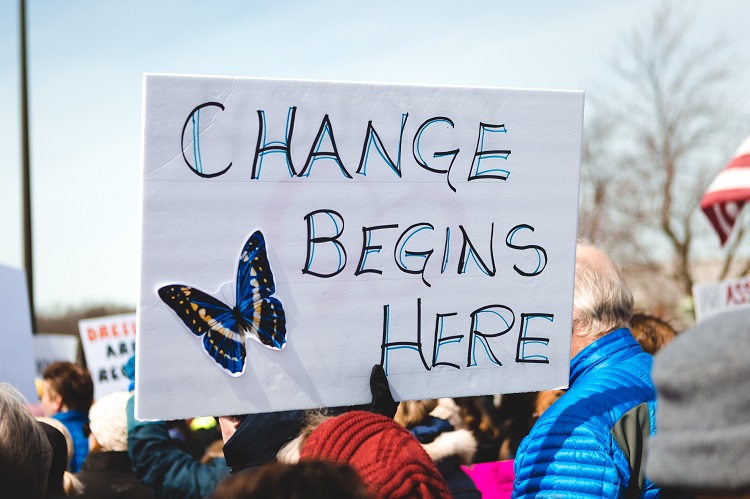This is the third part of a series on “Politics for Christians: Statecraft as Soulcraft.” Read part one and part two.
As we have learned from my last two posts, in “Politics for Christians: Statecraft as Soulcraft,” Francis J. Beckwith attempts to answer questions that Christians have regarding the role of religious beliefs in the public square. In his second chapter, Beckwith shows how liberal democracy relates to a Christian worldview.

Generally, liberal democracy refers to a system of self-governance that ensures individual freedoms and equality before the law. Beckwith provides three reasons for why Christians have largely embraced liberal democracy: 1) “It affords them the liberty to worship;” 2) “It protects the people’s power to hold the government accountable;” and 3) “It allows citizens to participate by voting, forming political parties and coalitions, running for office, and/or campaigning for causes and candidates.”
To support these reasons, he offers an explanation of liberal democracy—briefly described above—and the separation of powers. Then, he presents four points for his account of what it means to be a Christian citizen. Let’s take a look at each point.
1. Caesar’s Coin and the Image of God
Most often taken away from this story, which is found in Matthew 22:17-22, is that the church and government have separate jurisdictions. Yet, the story also teaches us to be concerned with all of our fellow human beings, not just Caesar. In reality, all humans have the image of God marked on them, and we should give each their due because we ought to give God his due.
The next question Christians must ask themselves is: what is the best way to go about helping the poor, feeding the hungry, etc.? There are various approaches to take, some of which advocate for free-market solutions in addition to church programs and charity work, and others that advocate for governmental programs in addition to church programs and charity.
2. Doing Justice
The Bible is chalk-full of passages about doing of justice—for both individuals and institutions (including government), but I won’t list them all here. Beckwith writes, “A Christian’s moral obligation to do justice may also involve concern for the public culture and how it affects the virtue of its citizens.” The ‘moral ecology’ is crucial to a healthy society; just as a river may be polluted, so too, can a moral ecology be polluted. Christians should be wary of the extent to which the government uses its power to protect or advance a moral ecology. Sometimes, the best that Christians can do is to simply protect the church from being coerced by the state to perform some action outside of the Christian moral conscience.
3. Knowing Your Government, Its Laws and the Scope of Your Citizenship
Know your rights! The Apostle Paul did, of course, when he appealed to his Roman citizenship in Acts 16 to preach the gospel. As Paul did not receive due process, he used the political rights afforded to him to correct an unjust situation. Beckwith provides the example of the Apostles preaching the Gospel and having the Sanhedrin punish them. In this story, the Apostles disobeyed the civil authorities, claiming they had knowledge which they believed warranted their actions. Similarly, in the present day, many people dismiss theological truth as subjective. But secularists often hypocritically answer the same “subjective” questions of truth that Christians do.
4. Supporting Non-Christian Candidates
Beckwith’s last point is that Christians can support non-Christians running for office. Non-Christian candidates very well may have theological resources at their disposal that support the same political beliefs that Christians have. Also, Christians shouldn’t use theological confessional creeds to judge the qualifications of those seeking political office. “Not only do Christendom’s most important creeds and confessions predate the existence of liberal democracies, their subject matter bears no relation to assessing those attributes that we consider essential to the leadership of a political regime.”
[pullquote] Christians living in a liberal democracy have a unique position to enact laws that advance the common good.[/pullquote]
These four points describe what it means to be a Christian citizen. Christians that are living in a liberal democracy have a unique position to enact laws that advance the common good and promote a just society. They may not agree on the specific course of action, but they should agree that there is a biblical call to do it.



